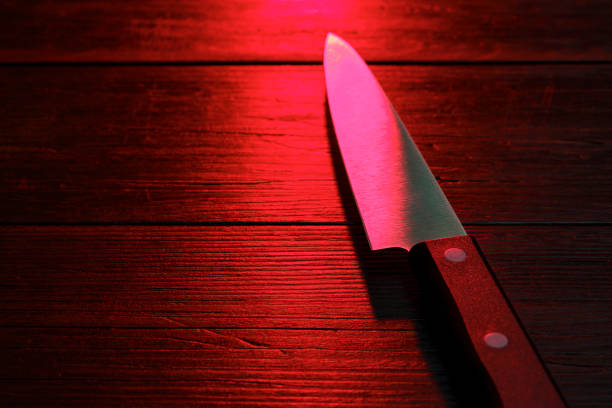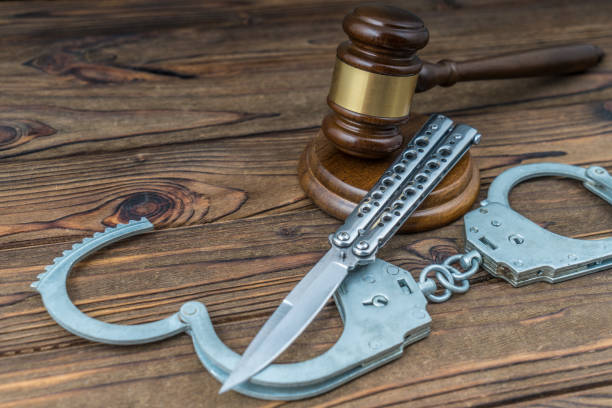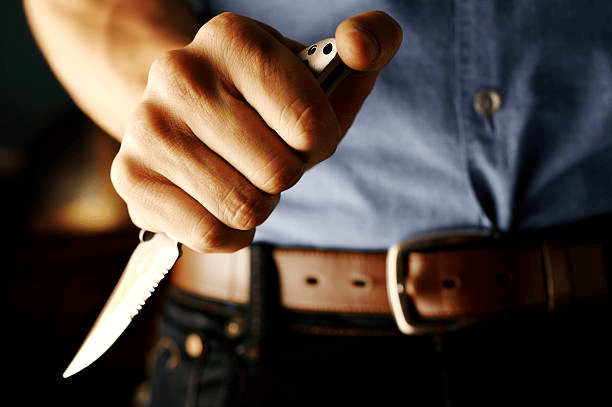Ever wonder if there are NSW knife laws? Knives are indeed double-edged swords, offering both utility and potential danger. Their primary function is to cut, and they can inflict significant injuries with minimal force. Unlike guns, which require specific actions to fire, knives can cause harm through accidental slips or intentional strikes.
Their presence in tense situations can heighten risk. Even if not intended for violence, a knife can embolden altercations and lead to unintended consequences. Unfortunately, knives are sometimes used as weapons for assault, robbery, or other criminal activities. Hence, this misuse poses a threat to public safety and necessitates restrictions.
NSW encourage responsible ownership and use of weapons by regulating their acquisition, gun or knife possession, and carry. This aims to address understandable community concern regarding safe handling in New South Wales.
Why Do People Carry Knives with Them?
While these tools pose a threat to the public, some people may have valid reasons for carrying knives around. Here are some reasons why people carry around knives:
- Tool for daily tasks: From opening boxes to preparing food, knives serve various practical purposes in everyday life. People who work in construction, carpentry, or other trades often carry them as essential tools.
- Self-defence perception: While the effectiveness of using a knife for self-defence is debatable, some people carry them for perceived protection, especially in areas with high knife crime rates.
- Cultural significance: In some cultures, people wear knives as part of traditional attire or as ceremonial objects because they symbolize significant value.
- Hunting and fishing: For outdoor enthusiasts, knives are crucial tools for hunting, fishing, and other outdoor activities.
Knives in Australia are divided into two categories: prohibited and restricted. Prohibited knives cannot be bought, sold, used, or possessed without a valid reason. On the other hand, restricted knives can be bought and used but not carried in public. There are also age restrictions on buying and owning knives, and it is illegal to import, manufacture, sell, or possess a knife made from prohibited material.
Anyone found in breach of NSW knife laws can face serious penalties. It is important to be aware of the relevant laws in your state or territory before buying, selling, carrying, or using a knife. The importance of knife laws in Australia cannot be overstated. They have helped to reduce knife violence and make communities safer.
NSW Knife Laws: Summary Offences Act 1988
The Summary Offences Act 1988 deals with the custody of offensive implements in public places or schools. Carrying any item capable of causing harm or threatening someone, such as a knife, categorises as an offence under this regulation.
Section 11B: Custody of Offensive Implement
Section 11B of NSW knife laws outlines the following:
1. Prohibition: It is illegal to have an “offensive implement” in your possession in a public place or school without a valid reason. The burden of proof lies with the individual to demonstrate a reasonable excuse for carrying the item.
2. Penalty: Violating this law can result in a fine of up to 50 penalty units or imprisonment for 2 years.
Forfeiture: The court may also order the confiscation of the offensive implement.
3. Definition: An “offensive implement” is defined as:
- Anything specifically designed or modified to injure someone.
- Any item, regardless of its intended purpose, that the person carrying it intends to use to harm, threaten, or damage property.

Section 11D: Parents Who allow Children to Carry Knives
Section 11D of the NSW knife laws, as outlined in the Summary Offences Act 1988, makes parents responsible if authorities catch their children, who are under 18, with knives in public places.
Key points of Section 11D:
- Parents can be charged with an offence if they knowingly allowed or permitted their child to carry a knife in public, and the child is subsequently caught with the knife.
- The maximum penalty for parents who violate this law is 5 penalty units.
- Parents can be charged even if their child has not been charged with a crime for carrying the knife.
- This law does not affect the child’s own liability for their actions.
- If a parent is charged under both this law and another law for the same incident, they cannot be punished twice.
Section 11F: Sale of Knives to Children
Section 11F of NSW knife laws state that selling a knife to anyone under 16 is a serious offence, punishable by a fine of up to 50 penalty units. This law, outlined in Section 11F of the Summary Offences Act 1988, aims to protect both children and the public from potential harm.
Key points of the section:
- Selling to minors: It’s illegal to sell any type of knife to someone under 16.
- Reasonable belief defence: Sellers could avoid penalty if they genuinely believed the child was 16 or older.
- Employer responsibility: Owners are liable for their employee’s actions, even if unauthorised. They can defend themselves if they had no knowledge and couldn’t have prevented the sale.
- Regulations & Exceptions: Specific knife types or situations might be exempt, as defined by regulations.
What Does the Crimes Act Say?
Section 93IB: Being caught with a knife in a public place or school is an offence, punishable by 40 penalty units, imprisonment for 4 years, or both.
Section 93IC: Using or carrying a visible knife in a public place or school, in a way that might scare someone, is also an offence. This carries a heavier penalty of 100 penalty units, imprisonment for 4 years, or both.
Possible Defences
What if you had reasonable defences against an a charge of carrying a knife? In NSW, Australia, carrying a knife in public isn’t automatically illegal. The law recognises valid reasons for having a knife, called “reasonable excuses,” that exempt you from charges. Here are several specific situations where carrying a knife is okay:
- Lawful pursuit of your occupation: If you use the knife for your authorised profession (think construction worker, chef).
- Food preparation: You’re carrying it for preparing or eating food (picnic knife in your basket).
- Legal activities: You’re using it for approved hobbies or sports (hunting knife with a permit).
- Business purposes: It’s part of your retail or trade activities (shopkeeper with a display knife).
- Organised events: You’re a participating in a sanctioned knife collector’s show or for lawful entertainment recreation or sport purposes
- Official uniform: The knife is part of your authorised uniform (security guard with a specific type).
- Religious reasons: You have a genuine religious purpose for carrying it. One example is the people of the Sikh religion. People of this religion are allowed to carry ceremonial knives at all times. Click here to read an article about this.

How Can We Help with Legal Matters About NSW Knife Laws?
Lawyers can explain the specific knife laws in your state or territory, including what constitutes an “offensive implement” and the different classifications of knives. Lawyers can clarify your rights if someone accuses you of breaking a knife law, like carrying a knife in a public place without a valid reason.
They can also explain the potential consequences of violating these laws, such as fines or imprisonment.
If you face charges for a knife offence, a lawyer can guide you on the best course of action, including deciding to plead guilty or not guilty and presenting your defence in court effectively.
We at JB Solicitors can represent you in court proceedings, negotiate with prosecutors on your behalf, and advocate for a reduced sentence or dismissal of charges.
Contact us today if you need Sydney criminal lawyers anytime with your legal matter.
